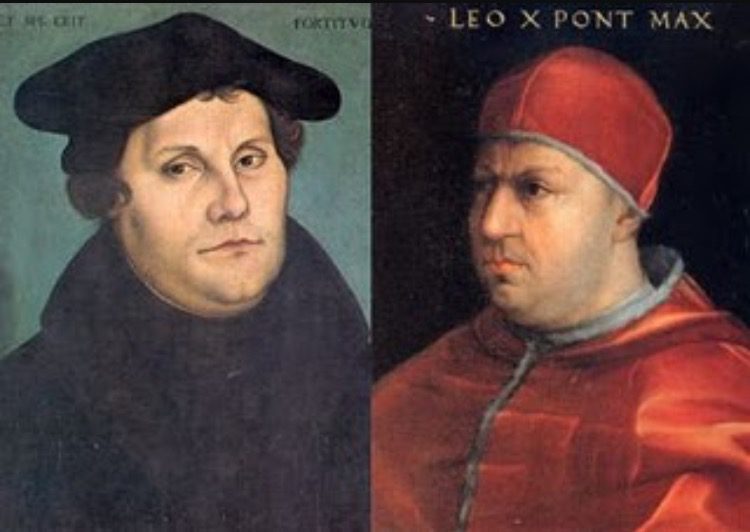In our post about the controversy over the direction of conservatism between Sohrab Ahmari and David French, I raised the question about whether the debate might have something to do with the theological differences between Roman Catholics and Evangelicals. Ahmari is a Catholic, who says that conservatism needs to be about the moral improvement of society, whereas French is an Evangelical, who says that conservatism needs to be about individual freedom. Those two goals, which are not necessarily incompatible, do reflect some historical differences between Catholicism and Protestantism.
So I was interested to see that Michael Brendan Dougherty–a Catholic who defends French–raised the same issue in National Review in a blog post entitled Catholics and Evangelicals:
The predominant anti-liberal voices on the right are traditionalist Catholics. There is a tradition of anti-liberal thought in the Catholic Church that is as old as modernity. The prominent pro-classical liberal voices are Evangelical Protestants, some confessional Protestants, and agnostics. And I wonder if a great deal of the attitude toward the present isn’t informed by the political and theological trends in these religious bodies.
It is certainly true that, historically, the church of Rome has sometimes opposed “liberal” ideas such as democracy. In the Middle Ages and in the ensuing conflict with the Reformation, the papacy claimed political authority over secular rulers, helped build up an absolutist Holy Roman Emperor, and opposed many of the social, economic, and political changes associated with the rise of free societies. This “illiberal” attitude would change with more recent papal pronouncements, but I can see that “traditionalist Catholics” would still have a certain orientation towards that way of thinking.
Conversely, evangelical-equivalent Protestants played an important role in the rise of political and economic liberalism. The Reformation emphasized the equality of all Christians before God, what Luther called the “Freedom of the Christian” made possible by the Gospel, and resistance to papal theocracy and the Imperial state. English Puritans like Milton crusaded for freedom of the press and opposed monarchy, culminating in their victory in the English Civil War, in which they overthrew and executed the King. With the Restoration of the monarchy, many of those revolutionaries fled to America, where they would foment a revolution of their own. Protestants also were instrumental in the rise of free market capitalism and in the experiments in self-government that characterized the trading cities of northern Europe.
Dougherty suggests that the pessimism evident in Ahmari’s call for political warfare and in other Catholic critiques–such as Patrick Deneen’s Why Liberalism Failed–may be shaped by his fellow-Catholic’s malaise over the church’s current woes, from the sex scandals to their liberal pope.
I would say, however, that there are orthodox Catholics who hold to the “liberal” values of democracy, freedom, and human rights. There are also orthodox Protestants who hold to the values of moral reform, social solidarity, and a government dedicated to shaping “the common good.”
Recognizing the different theological strains may not resolve the controversies any more than recognizing the different strains in conservative ideology. But they might be clarifying.
As a confessional Lutheran, I feel pulled in both directions, while thinking that there may be a framework–“Two Kingdoms” theology?–that might bring together the strong points of both.
UPDATE: I posted this in the comments:
A Lutheran “Two Kingdoms” theology would differ from both the Catholic (the church rules over society) and the Evangelical (stressing the liberty of individuals). According to the Lutheran view of society, the Law DOES apply in the state in a way it doesn’t in the spiritual realm, which is governed by the Gospel. Christians are still subject to that Law (the first use) as long as they are in the world, and enforcing that first use of the Law–restraining sin and punishing evildoers–is a primary purpose of the state. Furthermore, God is already active, though hidden, in the secular realm, working through vocation, including the vocation of the state’s governors (who themselves are subject to God’s law and, if they are Christians, as they are called to love and serve their neighbors). So, yes, Lutherans are likely to be sympathetic to Ahmari’s position, but they would want to take the Catholicism out of it, retaining the spiritual freedom of the Gospel, which is easily stamped out by anything resembling theocracy.
I’d appreciate your help in formulating a Two Kingdoms approach to these issues.
(By the way, see this definitive response to the debate by Rich Lowry and this definitive response by Alan Jacobs.)
Illustration: Portrait of Martin Luther by Lucas Cranach; portrait of Pope Leo X by Raphael. Public domain.













